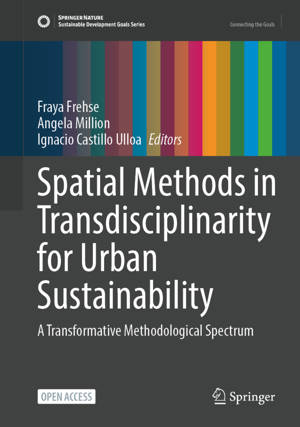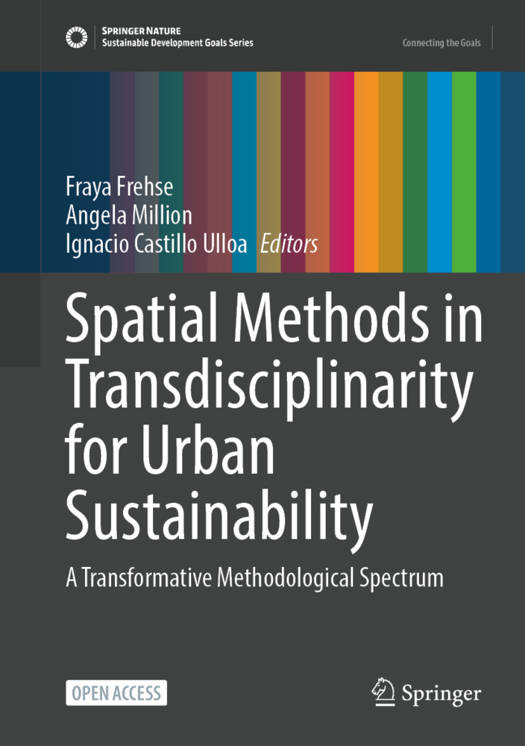
- Retrait gratuit dans votre magasin Club
- 7.000.000 titres dans notre catalogue
- Payer en toute sécurité
- Toujours un magasin près de chez vous
- Retrait gratuit dans votre magasin Club
- 7.000.0000 titres dans notre catalogue
- Payer en toute sécurité
- Toujours un magasin près de chez vous
Spatial Methods in Transdisciplinarity for Urban Sustainability
A Transformative Methodological Spectrum
Description
The book critically addresses the role of spatial methods in a transdisciplinary research-practice agenda regarding the promotion of urban sustainability throughout the globe with the aid of eight different, transdisciplinary approaches primarily based throughout the Global South and jointly penned by academics and practitioners. While the range of methodological discussions regarding research-and-practice collaborations between scientific researchers and local practitioners (based in NGOs, private firms or local government agencies) as well as independent policy-makers or artists for the purpose of urban sustainability has been thriving vastly over the last years, little attention has been paid to spatial methods in particular. This is not to mention their transdisciplinary use in urban contexts of the Global South. Resorting on empirical settings as diverse as Pretoria (South Africa), Porto Alegre and São Paulo (Brazil), Kolkata (India), Bangkok (Thailand) and Tshwane (South Africa) during the last four (partially Covid-19 pandemic) years as well as Tangerang (Indonesia) from 2001 to 2021, and San José (Costa Rica) between 2004 and 2007, the book sheds light on the following, twofold question: Which possibilities and limitations can spatial methods respectively unravel and encounter for transdisciplinary research and practice, in view of the SDG11 targets?
By pursuing very diversified research-and-practice paths with the aid of specific combinations of spatial methods, each of the eight chapters makes evident the book's central claim: the deployment of spatial methods in transdisciplinary projects for SDG11 has a transformative role. While some chapters especially highlight the personal dimension of the changes brought about to academics by the spatial-methodological, transdisciplinary experiments, others emphasize the academic reach of the spatial-methodological experience accomplished in and through transdisciplinarity.
This is an open access book.
Spécifications
Parties prenantes
- Editeur:
Contenu
- Nombre de pages :
- 185
- Langue:
- Anglais
- Collection :
Caractéristiques
- EAN:
- 9783031843662
- Format:
- Livre relié
- Dimensions :
- 178 mm x 254 mm

Les avis
Nous publions uniquement les avis qui respectent les conditions requises. Consultez nos conditions pour les avis.





